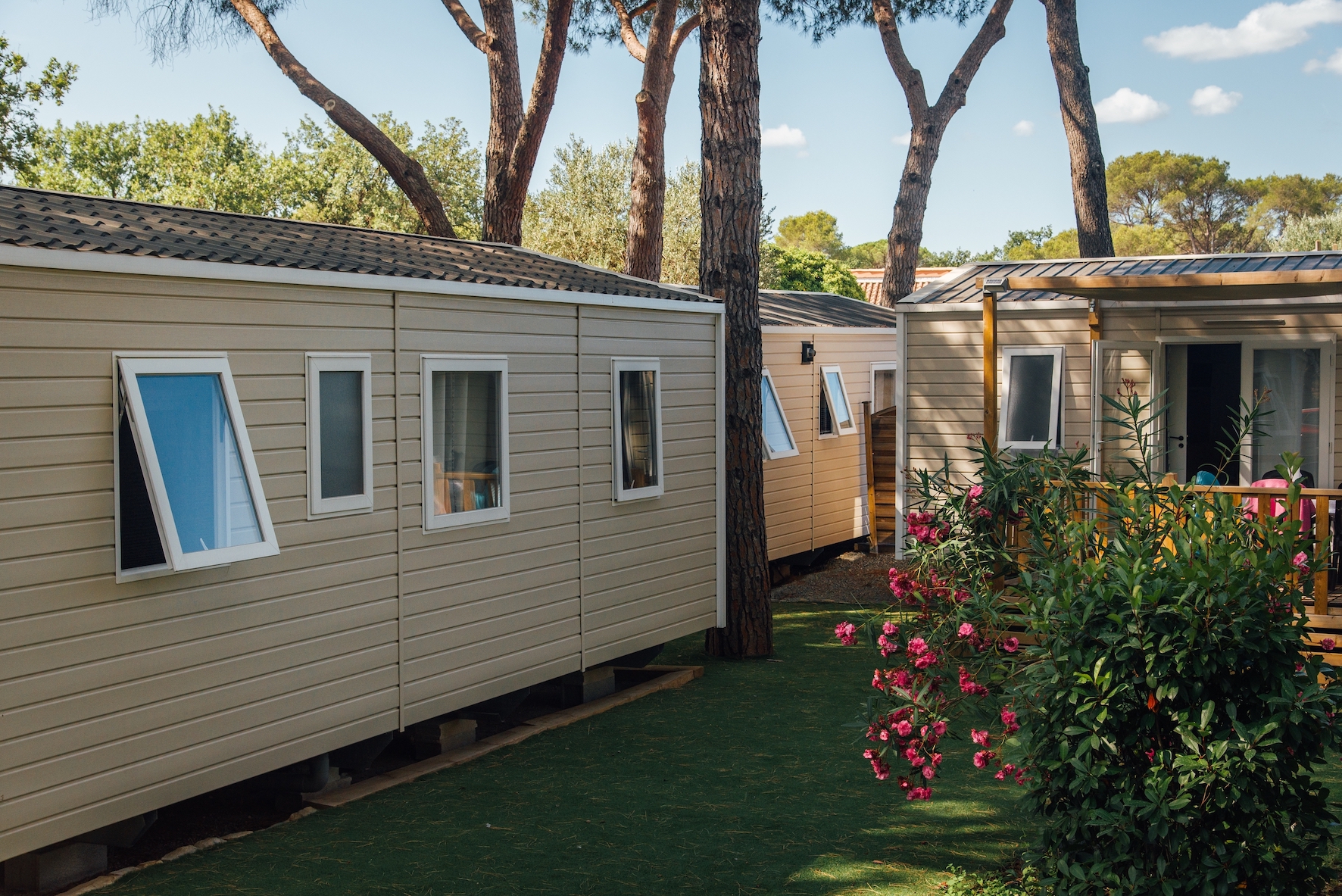
Thanks to the terminology, it’s easy to get confused between static caravans and mobile homes. They sound like totally different beasts – one permanently installed and one ready to roam. In reality, however, static caravans and mobile homes are essentially the same, often situated in a single location for many and differentiated only by how you use them. That said, your usage patterns can significantly impact your responsibilities as an owner and your insurance requirements. Read on to find out how.
Your Static Caravan – A Holiday Destination
Usage
Unlike a touring caravan which can be towed behind your car, a static caravan is designed to be transported just once, to a holiday park, where it will remain for several years. It provides a great location for family holidays and means you can take several breaks throughout the year without the cost of booking hotel accommodation.
Thanks to their stationary nature, static caravans provide comprehensive home comforts including double glazing, central heating, and a fitted kitchen and bathroom. Static caravans can also be quite roomy, often encompassing the same amount of space as a two-bedroom flat.
Location
When it comes to purchasing a holiday home, your static caravan will normally be located on a holiday park. Parks such as these do not have a permanent residential licence and as such, they are generally only open for 10 months of the year.
That means you cannot live in a static caravan holiday home permanently and you must have another property that is designated as your permanent residence – although you could live in your holiday home for all 10 months if you wanted to.
Insurance
Purchasing a static caravan as a holiday home is a major investment so it’s important to arrange appropriate insurance. In many ways, static caravan insurance is similar to home insurance; it should cover your caravan and its contents for damage or loss due to fire, theft, flooding, or adverse weather. Bear in mind that caravan parks are often located in scenic or coastal areas where it can get very wet and windy in the winter months, so it’s wise to ensure that you have adequate cover for extreme weather conditions.
If you intend to rent your static caravan out when you are not holidaying there, you will need to inform your insurer and take out cover for any potential damage caused by holidaymakers. You may also want to take out public liability insurance in case someone gets hurt while staying in your caravan.
Finally, if you know your caravan will be left empty over the winter months, ensure that the water system is fully drained to avoid frost damage and subsequent water leaks. Check your insurance policy to see how cover is provided during any periods when the caravan is unoccupied to ensure you don’t have any nasty surprises.
Your Mobile Home – A Permanent Residence
Usage
The term mobile home is something of a misnomer since mobile homes are simply static caravans that are lived in year-round as a permanent residence. They are mobile only in the sense that they are manufactured off-site and ‘moved’ into place during delivery. Once in place, however, they remain in a single location.
These prefabricated structures are built on a permanently attached chassis, often with levelling supports and axel stands. You might notice that you can purchase a single mobile home featuring one unit on one chassis, or a twin mobile home, which is delivered in two sections and measures 20 feet wide when connected together.
Location
Just like a static caravan, mobile homes (sometimes known as park homes) are stationary. They are most often situated in a residential park, and will require planning permission in Ireland, except for certain circumstances.
In some cases, for example, you may wish to place a mobile home on land you already own, or that you have purchased for that purpose. If the mobile home is to be placed there temporarily, you may not need planning permission for the site, but in any case it’s best to check with your local planning authority to establish the specific regulations in your area, particularly if you live in a conservation area.
Insurance
Because park homes are constructed differently to brick-built homes, you won’t be able to cover a mobile home with standard home insurance. Instead, you’ll need a policy that covers you for things like vandalism and weather damage, alongside fire and theft.
Speak to a specialist insurer to find the right coverage for your mobile home and be sure to check for any exclusions that you may want to cover separately such as:
- Vermin and insect damage
- Site clearance, transportation, and re-situation of a replacement home
- Using your caravan for trading
Lastly, before you invest in a mobile home, bear in mind that there are several factors that can impact the cost of insurance. If your park home is on a secure residential site, your premiums could be lower, however if your mobile home is located in an area with high crime rates, or it is slightly older, it will be more prone to damage and this may be reflected in your monthly cost.
Ask the Experts
Now that we’ve cleared the confusion around static caravans and park homes, we hope you’re feeling ready to purchase your new mobile home with confidence.
If you’d like to speak with our specialist insurance experts to make sure you get the right insurance for your mobile home property, get in touch today.